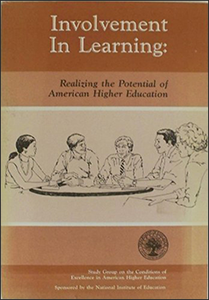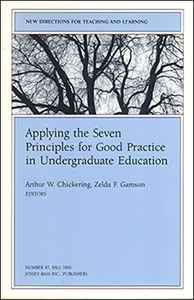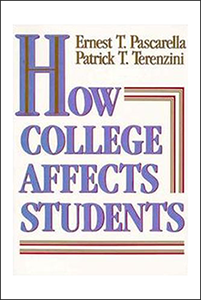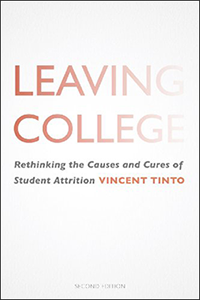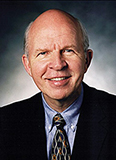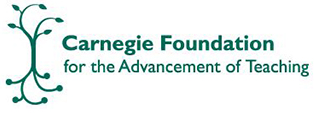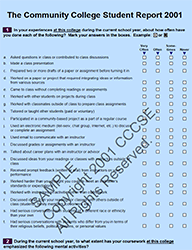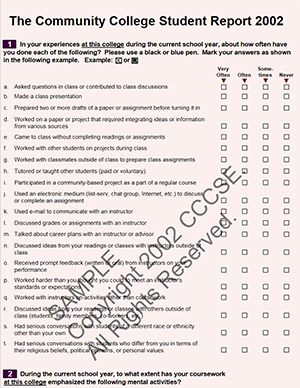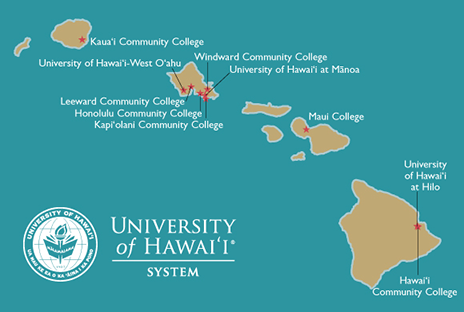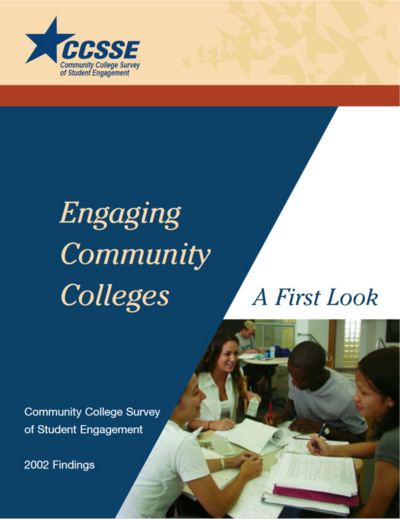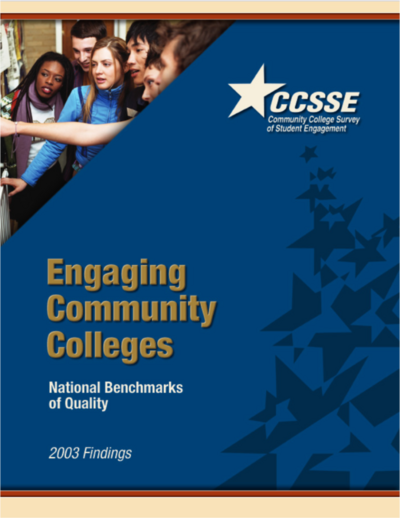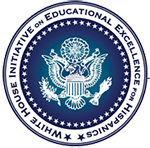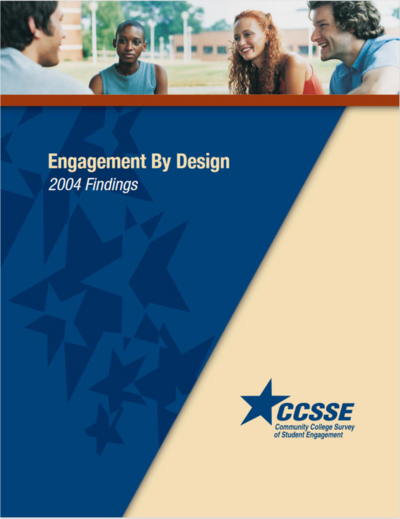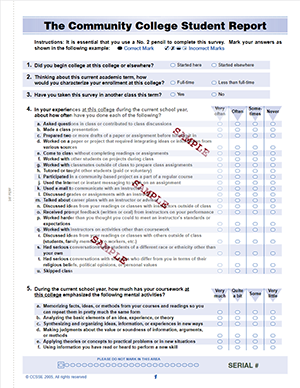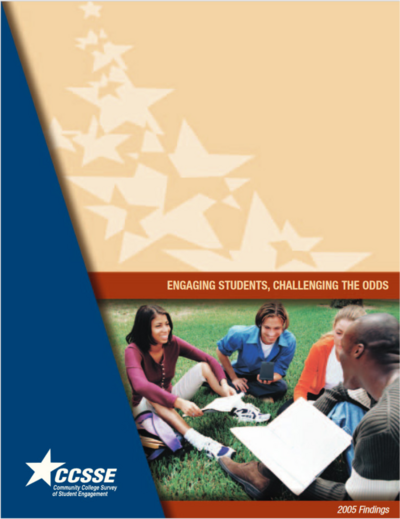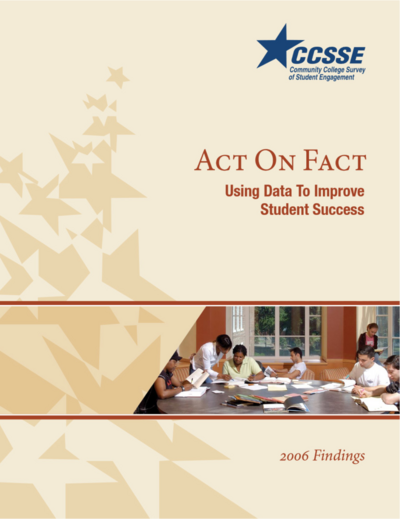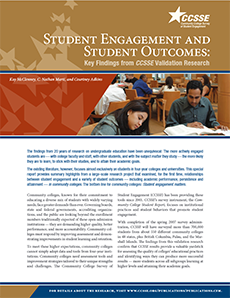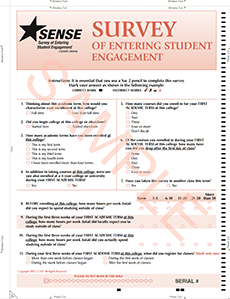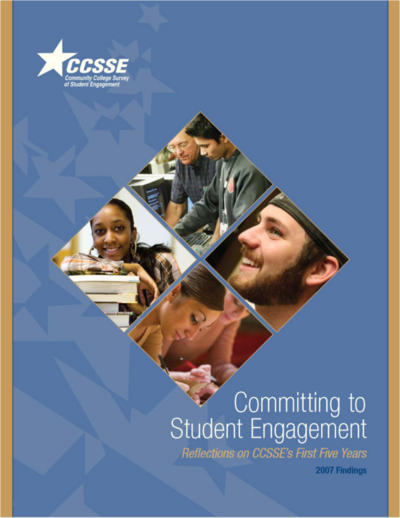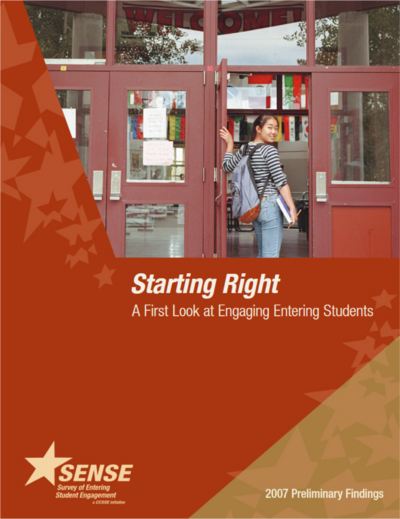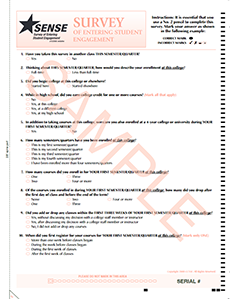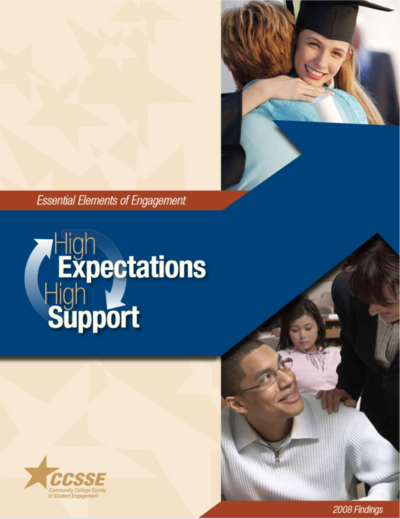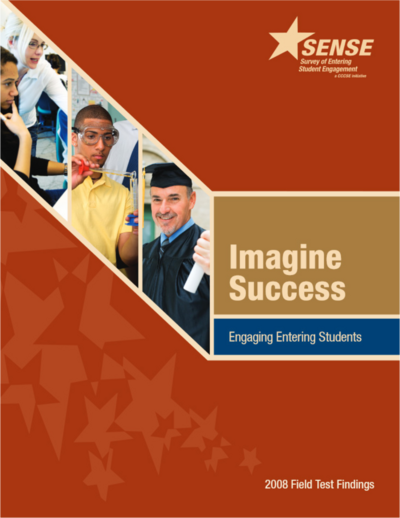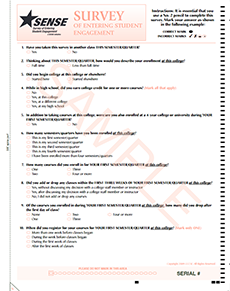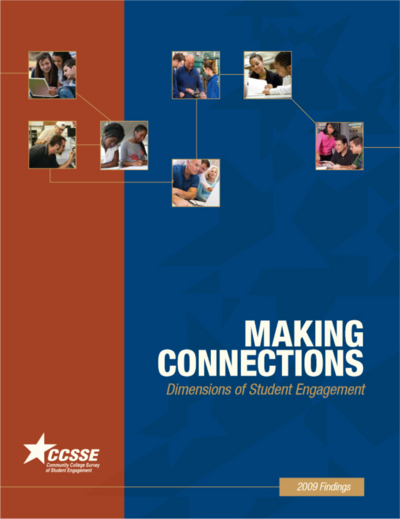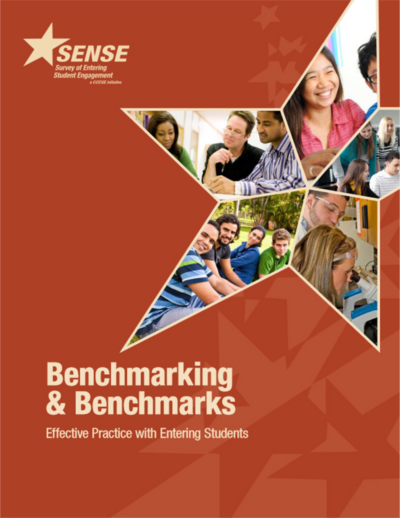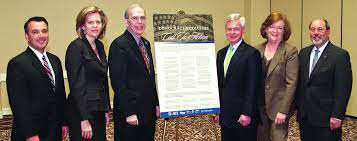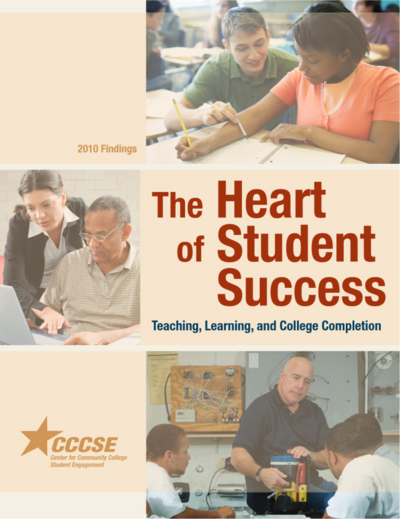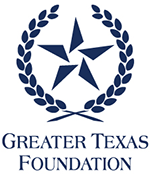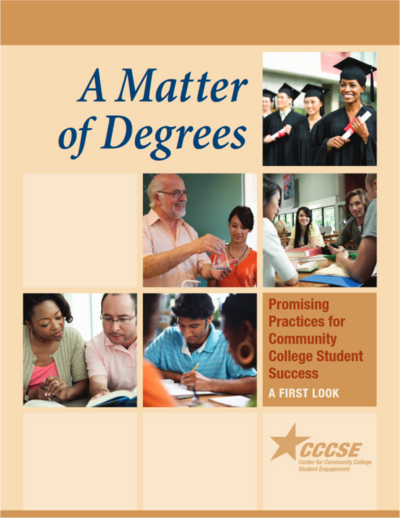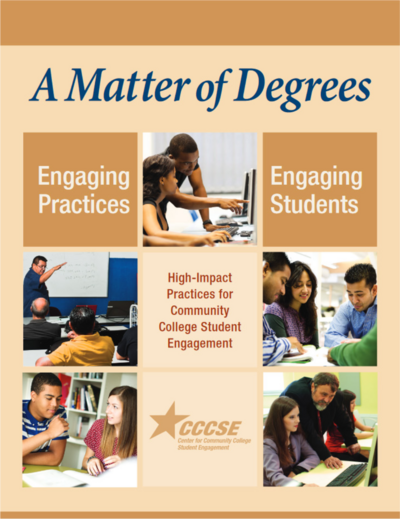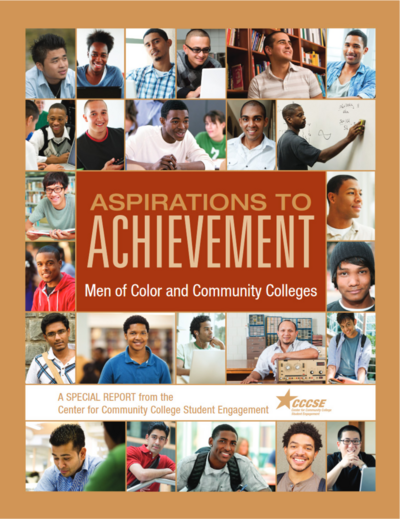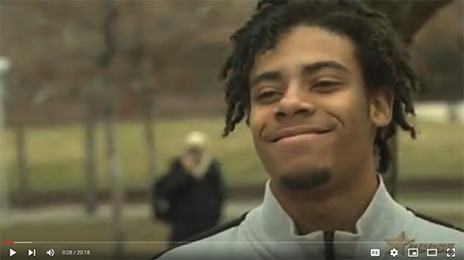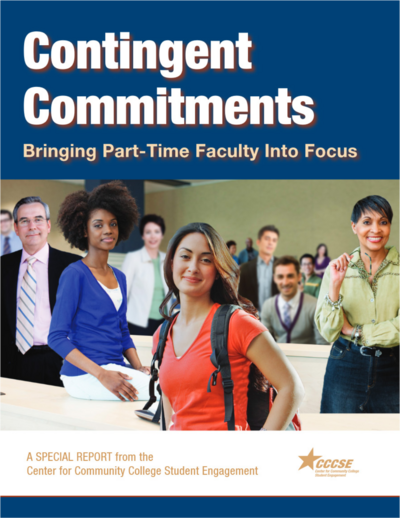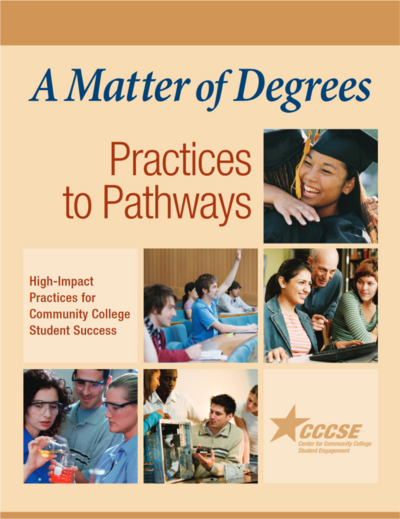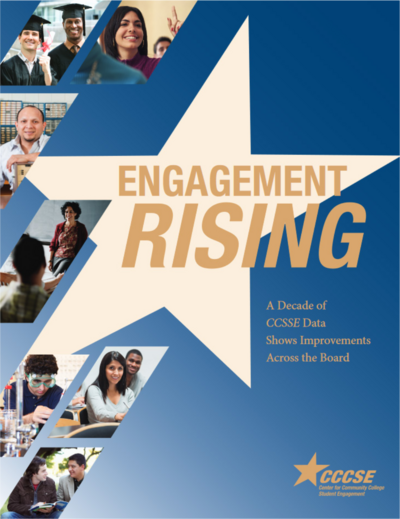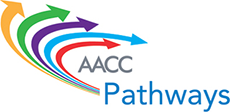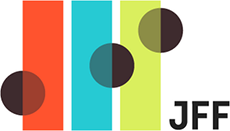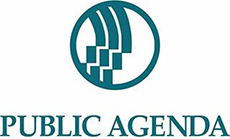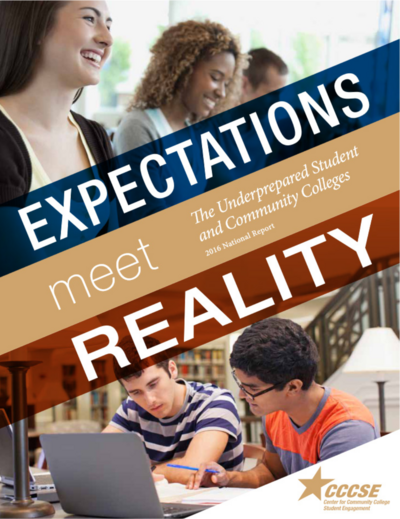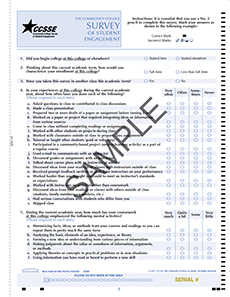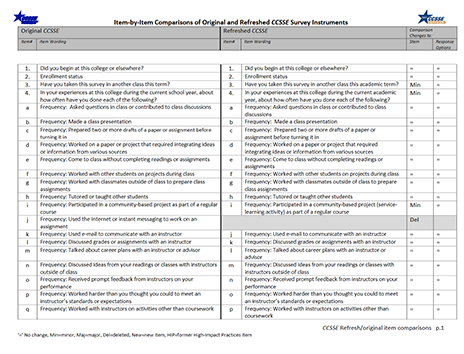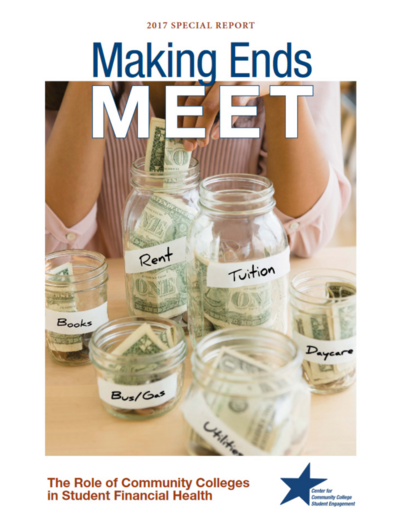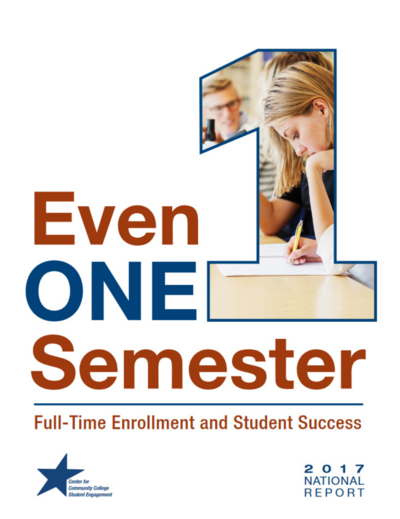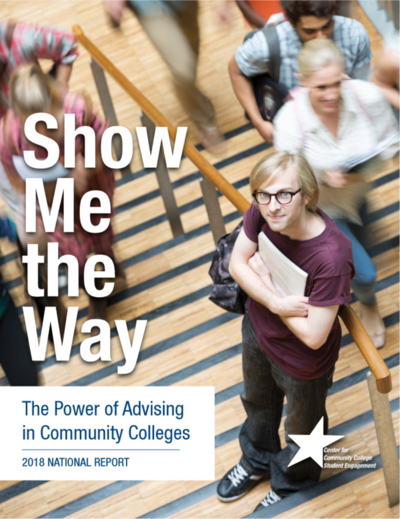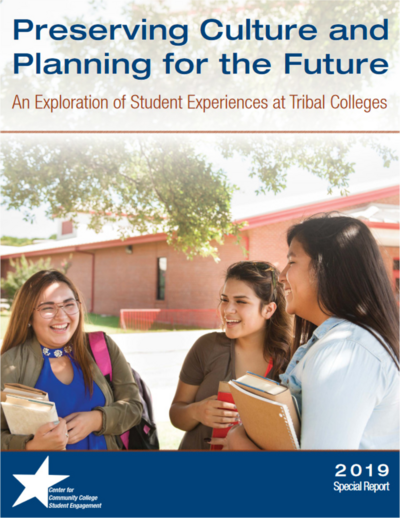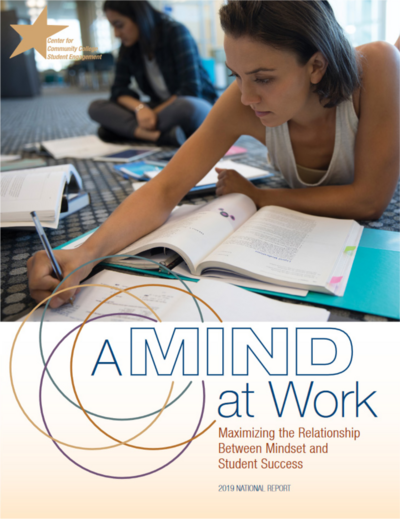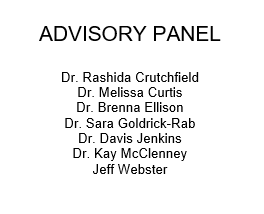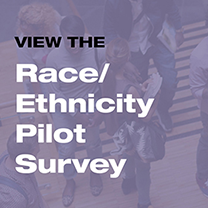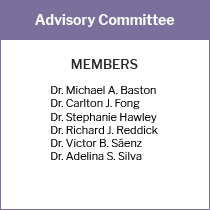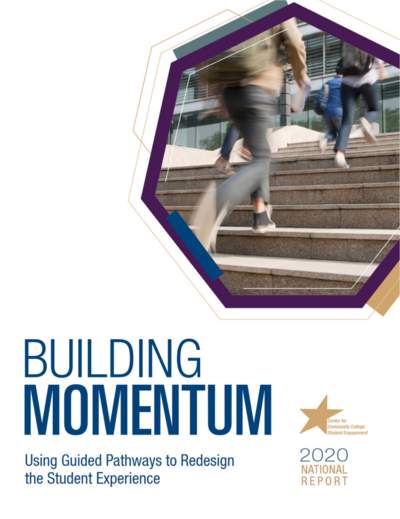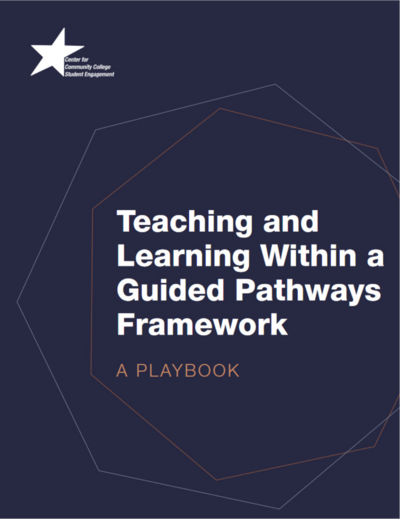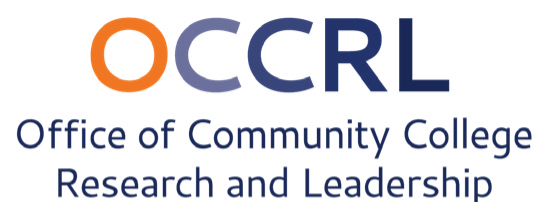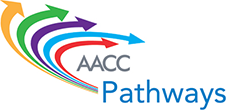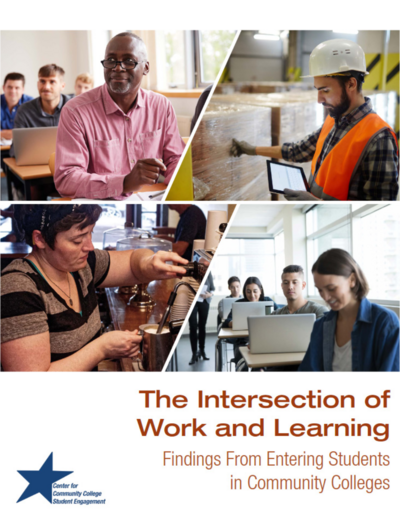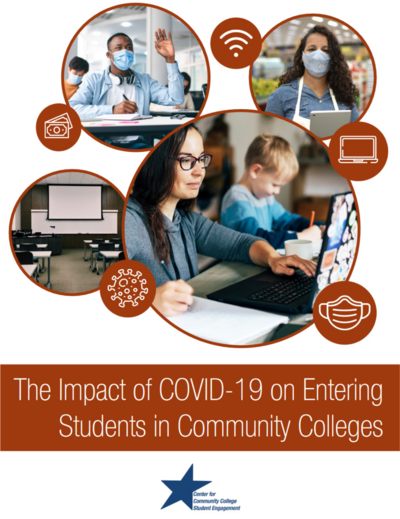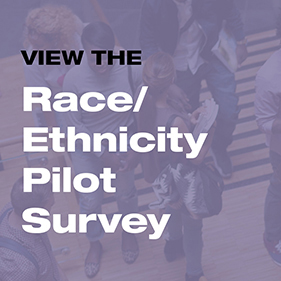Go back to CCCSE Celebrates 20 Years
Milestones
Decades of earlier research had proven the connection of student engagement to both retention and success.
The National Survey of Student Engagement (NSSE) at Indiana University Bloomington had by this time successfully conducted a few pilot administrations to measure student engagement as a proxy for quality at four-year colleges and universities—in an effort to challenge the traditional ranking systems and shift the focus from institutional reputation to student learning and outcomes.
Researchers, philanthropic organizations, educators, and other stakeholders increasingly observe the need for similar assessment and accountability tools tailored for the two-year sector of higher education.
Browse all videos.
With startup support from The PEW Charitable Trusts and Lumina Foundation, the Community College Survey of Student Engagement (CCSSE) in May establishes a home in The University of Texas at Austin’s Community College Leadership Program (led by longtime sector advocate Dr. John E. Roueche), with Dr. Kay M. McClenney as the project’s founding director and a “small but mighty” team at her side.
Browse all videos.
Along with The Pew Forum on Undergraduate Learning (directed by Dr. Russell Edgerton), the Carnegie Foundation for the Advancement of Teaching becomes a co-sponsor of the project.
The founding members of the project’s National Advisory Board assemble in June to discuss strategic and policy issues and mutual organizational interests, with Dr. Peter Ewell steering the group as chair, a role in which he goes on to serve for 16 years.
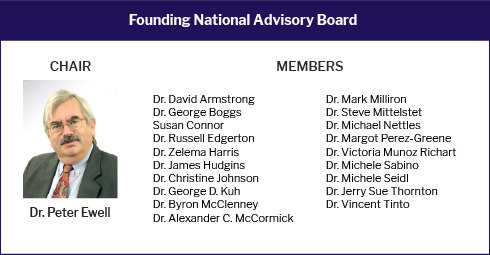
See all past board members and current members.
Browse all videos.
A Technical Advisory Panel meets in August to provide support and advice on the survey instrument, administration, analytical methods, and data reports. The group continues to meet several times in the first few years of the project to make revisions.
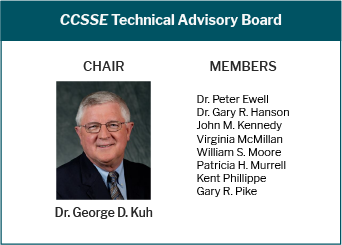
12 colleges participate in the pilot administration in the fall.
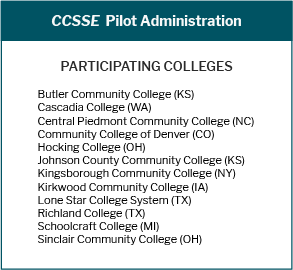
View colleges by year or watch a geographic time lapse of overall survey participation through the years.
Browse all videos.
A new grant from MetLife Foundation introduces the Initiative on Student Success, an early qualitative complement to the survey work that remains funded through a series of MetLife grants for about a decade.
Browse all videos.
48 colleges participate in the field test administration in the spring, with a slightly modified version of the survey instrument. All CCSSE administrations are subsequently conducted annually in the spring, and the survey instrument undergoes a couple more iterations before becoming stable in 2005.
View colleges by year or watch a geographic time lapse of overall survey participation through the years.
The University of Hawaii System forms the first statewide consortium of community colleges to participate in the survey, with a continued administration cycle. Other coordinated statewide groups follow suit in the years to come—not limited to, but most consistently, Connecticut, Iowa, Kentucky, Maine, Minnesota, Nebraska, New Hampshire, Oregon, Tennessee, and Wyoming.
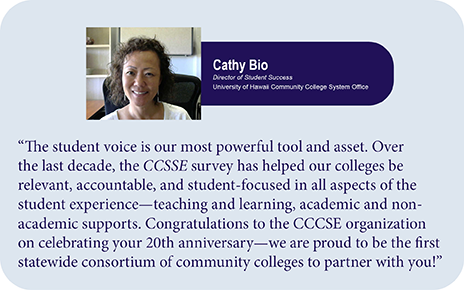
See all consortia.
The CCSSE team releases Engaging Community Colleges: A First Look (2002 CCSSE Findings).
What Was It About?
Preliminary findings from the CCSSE pilot and field test highlight the challenges of providing a high-quality education for community college students, as they are more likely to be older, attend part-time, work for pay, and commute. Moreover, many are academically underprepared, struggle financially, and face other high-risk factors. Participation in the survey serves to inspire campus conversations about meeting those challenges and improving outcomes.
A Message That Endures:
Community colleges have the complicated task of educating a diverse population of students with varying goals and competing demands on their time—while providing the broad access that ensures that everyone has an entry point to quality higher education.
Browse all publications.
CCSSE researchers work with the Technical Advisory Panel and National Advisory Board to finalize the Benchmarks of Effective Educational Practice. These groupings of conceptually related survey items endure as useful ways to examine colleges’ performance in areas that denote quality educational experiences.

The CCSSE team releases Engaging Community Colleges: National Benchmarks of Quality (2003 CCSSE Findings) and an executive summary.
What Was It About?
The new CCSSE benchmarks give community colleges the ability to examine their performance in areas critical to the quality of teaching and learning—and to compare their performance to groups of other institutions. A close review of the results from the first national administration of CCSSE confirm some long-held beliefs, but also reveal interesting trends and patterns.
From the Foreword:
Community colleges are doing the heavy lifting in keeping U.S. educational attainment rates the highest in the world. CCSSE results help keep these colleges honest through a public commitment to high standards and best practice. At the same time, they remind us all that there are many effective ways to go to college in a diverse and productive society. Both kinds of information will be needed to chart the challenging course ahead. — Dr. Peter Ewell
Browse all publications.
Colleges that are members of the Hispanic Association of Colleges and Universities (HACU) and/or are federally-designated as Hispanic-Serving Institutions (HSIs) can from now on join a new Hispanic Student Success Consortium and receive additional survey comparison reports.
See all consortia.
The CCSSE team releases Engagement by Design (2004 CCSSE Findings) and an executive summary.
What Was It About?
Community college students face many challenges and would benefit from more effective engagement strategies. Such interactions are not likely to happen by accident. Institutions, therefore, must find ways to promote student success by making engagement inescapable.
A Message That Endures:
CCSSE and its member colleges must not shy away from the question of whether the performance reflected in survey results is good enough, either for individual institutions or for community colleges nationally. Our answer—and, we think, the answer likely to emerge from most discussions at most community colleges—is that no matter how good we are today, it is not as good as we need to be or as good as we are capable of becoming.
Browse all publications.
CCSSE researchers revise the survey instrument slightly, and that version remains constant for over a decade.
View colleges by year or watch a geographic time lapse of overall survey participation through the years.
The CCSSE team launches an online faculty survey, the Community College Faculty Survey of Student Engagement (CCFSSE), as a companion to the spring student survey to collect instructors’ perceptions about student experiences as well as data about their teaching practices and use of professional time.
View colleges by year.
Colleges participating in Achieving the Dream initiatives can from now on join a new Achieving the Dream Consortium and receive additional survey comparison reports.
The CCSSE team releases Engaging Students, Challenging the Odds (2005 CCSSE Findings) and an executive summary.
What Was It About?
Students who face the greatest odds indicate higher levels of engagement, suggesting that these students must work harder to achieve less successful results. Thus, the findings provide insight into how community colleges can help more students achieve their goals. Meanwhile, results from a new faculty survey shown side-by-side with CCSSE data reveal that instructors perceive higher levels of student engagement than what students actually report.
Check It Out:
This report profiles six real community college students, giving a voice to their unique circumstances and aspirations.
Browse all publications.
The CCSSE team releases Act On Fact: Using Data to Improve Student Success (2006 CCSSE Findings) and an executive summary.
A Message That Endures
Colleges with a culture of evidence understand that the best way to promote student success is to base every decision—about programs, policies, budgets, and staffing—on the answer to this question: Which course of action will have the best effect on student learning? And the only way to know which practices have the best results is to repeatedly, unfailingly, unapologetically look at the data.
Something New:
This year, a new survey administration feature is introduced: five special-focus items that examine and area of student experience and institutional performance that is critical for student success. Each year, the five items will concentrate on a different topic. The 2006 items focus on academic advising and planning, and the findings are featured in this report.
Browse all publications.
Results from three independent studies funded by Lumina Foundation validate CCSSE’s use of student engagement as a proxy for student academic achievement and persistence and demonstrate that CCSSE benchmarks consistently correlate with outcome measures. The main takeaways from the 2006 scholarly paper are eventually published as an executive summary, Student Engagement and Student Outcomes: Key Findings from CCSSE Validation Research.
Browse all publications.
Despite several years of productive CCSSE administrations, it had become clear that the survey was not completely capturing a very important student voice: the entering community college student—half of whom were dropping out before reaching their second fall term. With three-year grants from Lumina Foundation and Houston Endowment and input from a new Technical Advisory Panel, the annual fall Survey of Entering Student Engagement (SENSE) is developed in response.
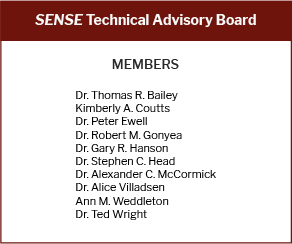
A new grant from MetLife Foundation allows the Initiative on Student Success to launch Starting Right: Walking a Mile With Students, which runs for about five years. Additional support halfway through the project is obtained from Houston Endowment. The Starting Right series most famously produced James’ story.
Browse all videos.
Select colleges in California participate in CCSSE and CCFSSE as part of the Student Support Partnership Integrating Resources and Education (SSPIRE) initiative, funded by The James Irvine Foundation and coordinated by MDRC.
22 colleges participate in the SENSE pilot administration.
View SENSE colleges by year or watch a geographic time lapse of overall survey participation through the years.
The CCSSE team releases Committing to Student Engagement: Reflections on CCSSE's First Five Years (2007 Findings) and an executive summary. Special-focus items explored the entering student experience.
What Was It About?
Five years of data from CCSSE since its first national administration in 2003 point to several lessons learned and strategies that work in building a culture of evidence to better engage students so they will be more likely to attain their academic goals. Several examples of colleges using CCSSE data for improvement and accountability are provided.
From the Foreword:
Community colleges are in the spotlight and CCSSE is near the center of that beam. It is the right work for the times and, as this and previous reports indicate, CCSSE results are providing rich, meaningful insights into the differentiated patterns of engagement of various community college student groups. We all should be impressed with what CCSSE has done in such a short time. … Happy Fifth Birthday, CCSSE!
— Dr. George D. Kuh
Browse all publications.
The SENSE team releases Starting Right: A First Look at Engaging Students (2007 Preliminary Findings), the first report to include student quotes collected from the newly launched multiyear Starting Right initiative.
What Was It About?
Addressing a staggering attrition rate of community college students nationwide, results from the new SENSE survey, examined alongside student voices from accompanying focus group work, reveal that focusing on the front door of the college experience—that is, entering students’ first impressions of and critical early interactions with the college—can increase engagement and improve persistence and success.
A Deeper Look:
Based on the usefulness of the five special-focus items added annually to CCSSE, the SENSE instrument also allows for data collection to explore key topics. Each year, the SENSE administration will include both the stable, core survey and a growing menu of 12-item modules from which colleges may choose two. Periodically, like the five CCSSE items, modules related to ongoing research are offered free of charge.
Browse all publications and videos.
The SENSE team hosts the inaugural Entering Student Success Institute (ESSI), a learning event bringing together cross-functional teams from about 20 colleges to analyze their entering student survey results and create a short-term action plan for helping students succeed in the earliest weeks of college. ESSI continues annually for several years, but more importantly paves the way for many other similar institutes attended by CCSSE and SENSE colleges covering a broad range of topics, such as improving outcomes for men of color, engaging Latinx students in transfer and completion, applying high-impact practices, and implementing guided pathways. The model has been used by numerous other organizations.
Browse all ESSI videos.
66 colleges participate in the SENSE field test administration, with a slightly modified version of the survey instrument.
View SENSE colleges by year or watch a geographic time lapse of overall survey participation through the years.
The CCSSE team releases High Expectations and High Support and an executive summary. Special-focus items explored student financial aid.
What Was It About?
“No one rises to low expectations,” asserts Dr. Vincent Tinto of Syracuse University, a well-known expert on student retention in college. Following his foreword, CCSSE findings and quotes from students reinforce the need for faculty members and student services staff to hold high expectations for students, while at the same time providing an array of wrap-around support services that will help to ensure that students succeed.
A Message That Endures:
Students do best when expectations are high and they receive support that helps them achieve at high levels. Lower the standard, and quality suffers. Eliminate the support, and students flounder. But colleges that demonstrate both high expectations and high support give their students essential tools to succeed.
Browse all publications and videos.
The University of Texas at Austin’s College of Education approves a proposal for the CCSSE, CCFSSE, and SENSE projects as well as the related qualitative work to join under an umbrella organization—the Center for Community College Student Engagement (CCCSE). The new name coincides with a relocation in August to a larger building just north of campus.
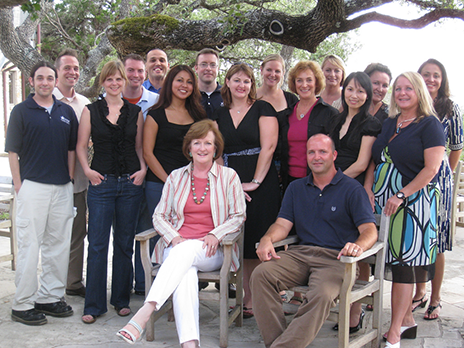
Browse all videos.
CCCSE releases its first report as a new center, Imagine Success: Engaging Entering Students (2008 SENSE Field Test Findings).
What Was It About?
Community colleges are boldly asked to envision a future in which nearly all students finish what they start and go on to attain well-paying jobs. Six design principles for redefining the entering student experience lay the groundwork for what will become the SENSE benchmarks. To help many more students succeed, colleges have to consider and continually reevaluate college intake process, teaching practices, class scheduling, support services, academic policies, and more.
From the Foreword:
Imagine a college where we thoughtfully, purposefully set up the conditions for success in the first three weeks of each student’s college life. … And then imagine what we would do in week four, in week 10, and for the rest of the year, and next year, and the year following. This second national report from the Survey of Entering Student Engagement (SENSE) shows us emerging strategies for engaging entering students—and encourages us to consider not only how to promote greater achievement, but also how we would have to adapt our current “ways of doing education” if we succeed. — Dr. Terry O’Banion
Browse all publications.
CCCSE revises the entering student instrument slightly ahead of the 2009 administration, and this version remains constant through the present.
View SENSE colleges by year or watch a geographic time lapse of overall survey participation through the years.
CCCSE releases Making Connections: Dimensions of Student Engagement (CCSSE 2009 Findings) and an executive summary. Special-focus items explored technology.
What Was It About?
With part-timeness a steadfast reality for about two-thirds of both students and instructors at community colleges, attention must be focused on strategies that strengthen connections across the institution. In four key areas—virtual space, in the classroom, on campus, and beyond the campus—the work of connecting is ongoing. It requires an interaction, a feeling of personal investment, a commitment to listen and to respond. Moreover, it is distinct from simply communicating information.
Is Your College a Connected College?
This report report includes a guide to prompt discussions around whether a college has systems and practices in place to make meaningful connections with and among students (see page 22).
Browse all publications.
CCCSE releases Benchmarking & Benchmarks: Effective Practice with Entering Students, for the first time reporting benchmark results for SENSE.
A Message That Endures:
Benchmarking is a powerful way to use data to improve performance. It relies on an ongoing cycle of gathering, analyzing, and using data: setting a goal, planning, implementing, evaluating, and then repeating the steps to continually refine practice.
Introducing the SENSE Benchmarks ...
The report introduces the Benchmarks of Effective Practice with Entering Students. Like the CCSSE benchmarks, these SENSE scores are standardized so that the mean—the average of all participating students—always is 50 and the standard deviation is 25. The standardized scores provide an easy way to assess whether an individual college is performing above or below the mean (50) on each benchmark.

Browse all publications.
On April 20, CCCSE joins five other organizations—American Association of Community Colleges (AACC), the Association of Community College Trustees (ACCT), the League for Innovation in the Community College, the National Institute for Staff and Organizational Development (NISOD), and Phi Theta Kappa Honor Society—in signing a pledge to engage in work aiming to increase student completion rates by 50% over the next decade while preserving access and quality. The historic document, entitled “Democracy’s Colleges: Call to Action,” asks community college leaders, faculty, and staff “to identify ways to help students understand the added value of degrees and certifications, and to help them progress toward their goals.” This unified action leads to CCCSE’s development of Promising Practices special research items added to all three surveys and an online institutional survey to assess whether colleges are implementing these practices—both deliverables of a forthcoming landmark grant project.
at the closing of the annual AACC Convention.
Browse all videos.
Data releases for CCSSE are upgraded from large binder deliverables to an interactive web-based interface, modeled after the one developed for SENSE upon its launch. The CCSSE and SENSE online reporting systems offer intuitive, point-and-click access to results and flexibility in creating custom reports, while helping to radically reduce paper and shipping volume.
Browse all videos.
CCCSE releases The Heart of Student Success: Teaching, Learning, and College Completion (2010 CCCSE Findings) and an executive summary, the first publication to present findings from all three surveys.
A Message That Endures:
Teaching quality is an essential link between improved college completion and improved learning. Just as access to college is an empty promise without effective practices that promote student success, improved college completion will have real meaning only with serious and sustained attention to the quality of what goes on between teachers and students. ... Effective teaching and meaningful learning: They are the heart of student success.
From the Foreword:
We must focus on hiring and developing faculty members who enjoy working with students even more than they enjoy their discipline, who are convinced that students are capable of learning, and who have the skills to engage students actively in the learning process. In so doing, we will increase the odds that our faculty and staff are well prepared to “make magic” in community college classrooms.
— Dr. John E. Roueche
Browse all publications.
With its first grant from Greater Texas Foundation, CCCSE launches Student Success BY THE NUMBERS, an initiative designed to strengthen capacity at community and technical colleges across Texas to effectively evaluate student success strategies. Fifteen institutions sign on to a three-year commitment involving campus visits with consultants, CCCSE survey administrations, participation in a two-day institute in 2013, and ultimately improving longitudinal student cohort tracking.
Securing funding from Bill & Melinda Gates Foundation and Lumina Foundation, CCCSE launches an initiative on identifying and promoting high-impact educational practices in community colleges, in short known as the High-Impact Practices Initiative. It is a multiyear effort to draw on data from students (via CCSSE and SENSE), faculty members (via CCFSSE), and college administrators—prompting the development of the Community College Institutional Survey (CCIS). CCIS is administered at institutions nationwide over the next two years to collect information about whether and how colleges implement a variety of promising practices.
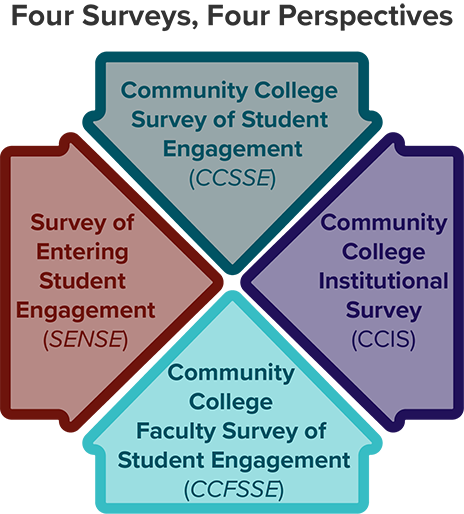
As part of the culmination of Starting Right, a longitudinal qualitative project supported by MetLife Foundation and Houston Endowment, CCCSE releases a new book and companion DVD, Students Speak — Are We Listening? Starting Right in the Community College.
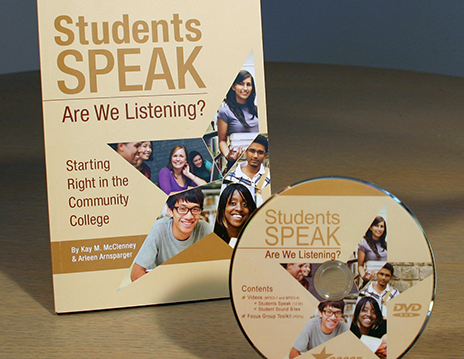
Browse all publications and videos.
CCCSE releases A Matter of Degrees: Promising Practices for Community College Student Success (A First Look), the first in a three-part series exploring high-impact educational practices supported by Bill & Melinda Gates Foundation and Lumina Foundation.
What Was It About?
Charged with improving student retention, producing more graduates, and ensuring academic quality, community colleges are seeking better understanding of what works in promoting student success and scaling effective educational practices. The pattern of findings from four different but related CCCSE surveys reflects a series of incongruities in implementation of policies and programs that colleges will need to address.
Sponsor Acknowledgment:
The findings presented in this report were made possible through the High-Impact Practices Initiative, a project funded by Bill & Melinda Gates Foundation and Lumina Foundation.
Browse all publications and related videos.
CCCSE releases A Matter of Degrees: Engaging Practices, Engaging Students, the second in a three-part series exploring high-impact educational practices supported by Bill & Melinda Gates Foundation and Lumina Foundation.
What Was It About?
Further analyses on a set of educational policies and practices for which there is emerging evidence of effectiveness show higher benchmark scores for students who are exposed to them. However, while increasing numbers of institutions are offering such experiences, only small numbers of colleges require them, and far too few students are participating in them.
Discussion Guide:
This report includes key questions for campus discussion to evaluate the effectiveness of the college’s current practices and to consider how they can be brought to scale (see page 36).
Sponsor Acknowledgment:
The findings presented in this report were made possible through the High-Impact Practices Initiative, a project funded by Bill & Melinda Gates Foundation and Lumina Foundation.
Browse all publications and related videos.
The Kresge Foundation and Greater Texas Foundation grants enable CCCSE along with NSSE to partner with Excelencia in Education on Engaging Latino Students for Transfer and College Completion. As part of the project, 24 colleges from urban locations—that is, 12 pairs, each of which include a baccalaureate institution and a feeder community college—are selected to prepare for and participate in a two-day institute focused on needed changes in policy and practice within and across sectors.
Browse related videos.
CCCSE releases a special report, Aspirations to Achievement: Men of Color and Community Colleges, and an accompanying short film.
What Was It About?
Analyses of survey data and focus group footage build on a growing body of research about the experiences of men of color in higher education and offer information community colleges can consider as they work to close the persistent participation and attainment gaps that characterize the experiences of Black male and Latino students in American higher education. It is only through addressing these inequities that colleges can improve student success overall.
Tools for Courageous Conversations:
This report includes a robust section of guiding questions and additional resources, including a set of institutional standards in this work developed by university professor and scholar Shaun Harper (see pages 26–28).
Sponsor Acknowledgment:
The findings presented in this report were made possible through a special initiative—Improving Outcomes for Men of Color in Community Colleges—funded by The Kresge Foundation.
Browse all publications and related videos.
CCCSE releases a special report, Contingent Commitments: Bringing Part-Time Faculty Into Focus, upon the conclusion of a grant project funded by MetLife Foundation.
What Was It About?
Community colleges depend on part-time faculty to teach more than half of all their credit students, yet college policies and practices typically do not encourage or allow part-time faculty to participate as full partners in promoting student success. This disconnect can have negative consequences for student engagement and success.
Discussion Guide:
Echoing the work of the Delphi Project, this report offers a guide for engaging faculty and staff in investigation, reflection, and conversation about the role and experience of part-time faculty in their own institution (see pages 25–27).
Sponsor Acknowledgment:
The findings presented in this report were made possible through Strengthening the Role of Part-Time Faculty in Community Colleges, a project funded by MetLife Foundation.
Browse all publications and related videos.
Dr. Evelyn N. Waiwaiole becomes the new director of CCCSE in May, after serving in various roles at CCCSE since its beginning and previously leading the National Institute for Staff and Organizational Development (NISOD).

Dr. Waiwaiole
Browse all videos.
CCCSE releases A Matter of Degrees: Practices to Pathways, the final in a three-part series exploring high-impact educational practices supported by Bill & Melinda Gates Foundation and Lumina Foundation.
What Was It About?
Now that data show a relationship between student participation in the previously identified 13 high-impact practices and select student outcomes around course completion and persistence, it is time for colleges to step up from small-scale, discrete practices to identifying the ones that matter most and integrating them into coherent academic and career pathways for all students.
Discussion Guide:
As this report lays the groundwork for guided pathways reform, it raises questions that colleges can use as they contemplate the redesign of their students’ educational experiences (see page 28).
Sponsor Acknowledgment:
The findings presented in this report were made possible through the High-Impact Practices Initiative, a project funded by Bill & Melinda Gates Foundation and Lumina Foundation.
Browse all publications and related videos.
CCCSE releases Engagement Rising: A Decade of CCSSE Data Shows Improvements Across the Board.
What Was It About?
Findings from more than 10 years of CCSSE survey administrations show an unmistakable trend: consistent, continuous improvement in engagement. Student demographics have remained relatively stable during this time period, so the rise in engagement is not likely the result of who is attending college, but instead the result of intentional change in policy and practice at colleges across the country.
Coming Soon ... A Refreshed CCSSE Instrument!
The work of altering an annual, stable survey takes considerable time and preparation; thus, this report brings the announcement of the 2017 launch of CCSSE Refresh. Among the changes, the core survey will include new items about high-impact practices, older terminology will be removed, and CCFSSE will be similarly updated.
Browse all publications.
CCCSE joins lead partner American Association of Community Colleges (AACC) and six other national organizations in the fall to establish the Pathways Project, a sweeping movement to build knowledge around designing and implementing fully scaled pathways in community colleges, funded by Bill & Melinda Gates Foundation. As a cornerstone of the project, a selected cohort of 30 colleges must engage in a series of six CCCSE-style, two-day data institutes over the span of three years to embark on transformational change in how they serve their students.
The Pathways Collaborative forms under the auspices of the Bill & Melinda Gates Foundation in response to recent funding. The mission of this group of organizations that includes CCCSE is to support the adoption and scale of guided pathways to dramatically improve outcomes and close equity gaps. In 2017, Sova joins as the facilitating partner of the collaborative.
CCCSE releases Expectations Meet Reality: The Underprepared Student and Community Colleges in the spring, and for the first time publishes an accompanying resources page to share related materials, which becomes standard practice.
What Was It About?
The persistent reality is that the majority of community college students are underprepared for college-level work and do not reach their goals—and many in the field agree that developmental education is broken. However, innovative work happening at institutions across the country highlight what’s possible when it comes to improving assessment and placement and bridging the gap between remedial education and student success—a hallmark of guided pathways reform.
Questions for Consideration:
This report raises issues and questions to guide difficult conversations about long-held beliefs and practices as colleges continue grappling with the complex issues related to assessment, placement, and developmental education (see page 20 of report or resources page).
Browse all publications and related videos.
CCCSE receives two grants from Greater Texas Foundation, one to engage in a three-year validation study of the entering student survey and another to support the development of data-informed institutional improvement at 14 small, rural colleges in Texas.
Following in the footsteps of the national Pathways Project, the National Center for Inquiry & Improvement (NCII) establishes the California Guided Pathways Project, coordinated by Foundation for California Community Colleges and funded by Bill & Melinda Gates Foundation, College Futures Foundation, The James Irvine Foundation, and The Teagle Foundation. CCCSE again serves as a partner organization to, among other things, coordinate the logistics for six institutes and liaise with the participating colleges in preparation for each institute.
After more than two years of planning, a refreshed version of the CCSSE instrument is launched in preparation for the annual spring administration, and this version remains constant through the present. Parallel updates are also made to CCFSSE. Crosswalk documents illustrating all changes are shared with colleges.
CCCSE releases a special report, Making Ends Meet: The Role of Community Colleges in Student Financial Health, and the related resources page, supported by MetLife Foundation.
A Message That Endures:
The cost of attending community college is a concern for many community college students, with nearly half of CCSSE respondents saying that lack of finances is an issue that could cause them to withdraw. Thus, making sure students can pay for college—and pay for housing, food, and other basic needs while in college—must be an integral part of the completion agenda.
Tools and Resources:
With this report, CCCSE releases a discussion guide and a focus group guide, both of which can be used to facilitate conversations regarding student financial health (see pages 14–15 and resources page).
Sponsor Acknowledgment:
The findings presented in this report were made possible through a MetLife Foundation grant and through collaborations with several partner organizations (identified on resources page).
Browse all publications and related videos.
CCCSE releases Even One Semester: Full-Time Enrollment and Student Success and the related resources page.
What Was It About?
Students who attend full-time for even one semester have an edge—the full-time edge—that is reflected in their higher rates of engagement, completion of gateway courses, persistence, and credential attainment. Given these findings, colleges should consider asking every student one straightforward question: “Is there any way you could attend college full-time, even for one semester?”
Tools and Resources:
How can colleges use their awareness of the “full-time edge” to improve student outcomes? Some questions for consideration provide a starting point. In addition, colleges can conduct focus groups to capture ideas on how best to improve the part-time student experience (see page 15 and resources page).
Browse all publications and related videos.
CCCSE releases Show Me the Way: The Power of Advising in Community Colleges and the related resources page as part of a grant project funded by The Kresge Foundation.
What Was It About?
Students and faculty consistently report that advising is the most important student service that colleges offer—with good reason: Students who report meeting with an advisor are more engaged across all CCSSE benchmarks than their peers who have not met with an advisor. However, factors such as who provides the advising, how in-depth the conversations are, and how frequent a student attends infuence these results further.
Tools and Resources:
As the role of advisors continues to evolve and expand, the report poses questions for consideration and is accompanied by focus group guides for further exploration (see page 20 and resources page).
Sponsor Acknowledgment:
The findings presented in this report were made possible through a grant from The Kresge Foundation.
Browse all publications and related videos.
CCCSE names Dr. William D. Law as the second Chair of its National Advisory Board early in the year before the September meeting.

Dr. Law
See all past board members and current members.
Browse all videos.
CCCSE releases a special report, Preserving Culture and Planning for the Future: An Exploration of Student Experiences at Tribal Colleges, and the related resources page, upon the conclusion of a grant project funded by Ascendium Education Group.
What Was It About?
While students attending tribal colleges indicate positive experiences around identity, sense of belonging, engagement, and making connections, they also face many challenges such as unreliable transportation, the digital divide, and food insecurity. The vital work of tribal colleges and the struggles their students encounter deserve continued exploration and the attention of the larger field of higher education.
Focus Group Guide:
With this report, CCCSE released a focus group guide (see resources page).
Sponsor Acknowledgment:
The findings presented in this report were made possible through Project Success, an initiative of the Federal Student Aid and U.S. Department of Education and partnership with Ascendium Education Group.
Browse all publications and related videos.
CCCSE releases A Mind at Work: Maximizing the Relationship Between Mindset and Student Success and the related resources page.
What Was It About?
Looking at four areas of academic mindset (growth vs. fixed, self-efficacy, relevance of academic experience, and sense of belonging), student respondents are charted along a mindset scale. Few results appear on the extreme ends, but responses indicating a nonproductive mindset (as opposed to a fully productive mindset) tend to cluster in two areas: testing and math, pointing to areas where colleges can influence mindset to make the greatest dividends in students success.
Tools and Resources:
Understanding mindset—and helping students improve their academic mindsets—may open new avenues for improving student success. Therefore, this report is accompanied by focus group guides, an institutional discussion guide, and a chart linking survey items to the four mindset areas (see pages 19–20 and resources page).
Browse all publications and related videos.
Dr. Linda L. García becomes the third and current executive director of CCCSE in the fall.

Dr. García
See all current CCCSE staff.
Browse all videos.
The CCCSE team adapts and responds swiftly to the COVID-19 pandemic, taking the following actions:
- Offering an option for CCSSE 2020 colleges to either postpone their administration to 2021 or transition their 2020 administration to an online or hybrid platform and providing intensive support for achieving satisfactory response rates
- Developing and administering a free online survey focused on how students are managing the resulting hardships, as well as releasing a collection of resources designed to assist colleges in this unprecedented educational environment
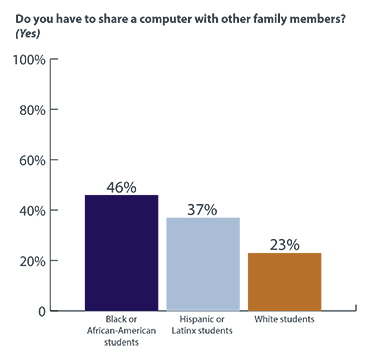
See all articles highlighting the findings.
- Creating COVID-19 Impact special-focus items for SENSE 2020 and CCSSE 2021, thanks to funding from Trellis Foundation.
For the first time, colleges participating in SENSE can administer the survey in an online format. SENSE 2020 also features a free special-focus item module exploring food insecurity, housing insecurity, and homelessness, as part of a grant jointly funded by The Kresge Foundation and ECMC Foundation. Similar items are also developed for CCSSE 2021 and interviews with students are planned for the next year.
CCCSE publishes We Stand Committed and forms a special advisory committee to guide the development of a stand-alone race/ethnicity online survey to be offered free as a pilot to CCSSE 2021 colleges.
Browse all videos.
CCCSE releases Building Momentum: Using Guided Pathways to Redesign the Student Experience and the related resources page, supported by Bill & Melinda Gates Foundation.
What Was It About?
Now that momentum for guided pathways is building in the field, colleges and stakeholders seek to understand how students are experiencing the movement. Where are we making progress in transforming the student experience, and where is attention still needed? Findings in this report are the first national baseline data on student and faculty perceptions of pathways practices.
Tools and Resources:
As colleges begin to undergo transformational change, CCCSE shares related focus group guides, toolkits for working with the survey data within the pathways framework, and other tools (see pages 26–27 and resources page).
Sponsor Acknowledgment:
The findings presented in this report were made possible through the Pathways Project, a multiyear effort funded by Bill & Melinda Gates Foundation and carried out by numerous partners.
Browse all publications and related videos.
CCCSE names Dr. Daniel J. Phelan as the third Chair of its National Advisory Board.
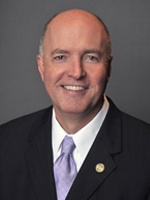
Dr. Phelan
See all past board members and current members.
Browse all videos.
CCCSE releases Teaching and Learning Within a Guided Pathways Framework: A Playbook, one component of a robust Ensure Students Are Learning Web Toolkit, an achievement made possible by funding from Bill & Melinda Gates Foundation and through collaborations with the Association of American Colleges & Universities (AAC&U) and the Office of Community College Research and Leadership (OCCRL).
Ensure Students Are Learning Toolkit and Playbook:
This publication is one small part of a large collection of tools and resources created in service of the essential practice of Guided Pathways Pillar 4: Ensure Students Are Learning. When institutional change is on the menu, engaging, informing, preparing, and supporting faculty is central to the work, as they bring passion and intellect to the design and implementation of high-quality guided pathways for all of their students.
Sponsor Acknowledgment:
The findings presented in this report were made possible through funding from Bill & Melinda Gates Foundation and through the work of the Pathways Collaborative, in particular the Association of American Colleges & Universities (AAC&U) and the Office of Community College Research and Leadership (OOCRL).
Browse all publications and innovative teaching practices.
Bill & Melinda Gates Foundation invites CCCSE, along with several other partner organizations, once again in the ongoing guided pathways work, funding an initiative entitled Capture Intermediary Learning, with the objective to develop a case study outlining lessons learned and key insights gleaned from the foundation’s investment in the AACC Pathways Project.
CCCSE releases The Intersection of Work and Learning: Findings From Entering Students in Community Colleges as part of a grant from Trellis Foundation.
What Was It About?
The majority of community college students work while attending college, and many work because their financial situations dictate that they do so. When faculty and staff talk with entering students about their work and help them find balance between their working lives and their academic lives, they are helping those students onto a path of being more successful.
Sponsor Acknowledgment:
The findings presented in this report were made possible through the The Working Learner Project, funded by Trellis Foundation.
Browse all publications.
CCCSE receives a grant from Greater Texas Foundation for the Listen to Me: I Have Something Important to Say project, which, through a series of longitudinal focus groups, seeks to augment the national data about term-to-term persistence and to help the field understand why more students are not completing a certificate, earning an associate degree, or transferring.
CCCSE releases The Impact of COVID-19 on Entering Students in Community Colleges to highlight results of the special-focus items administered with SENSE 2020, thanks to funding from Trellis Foundation.
What Was It About?
The COVID-19 pandemic has illuminated inequities that already existed for many students, and the community college charge to close equity gaps has become even more urgent. The work before us is to continue to reflect on what has been learned during the past year—and incorporate these lessons into policies, procedures, and student supports.
Sponsor Acknowledgment:
The findings presented in this report were made possible through funding from Trellis Foundation.
Browse all publications.
For the first time, colleges participating in CCSSE can administer the survey in an online format. Increasing demand from colleges for an online survey had led to several years (2015–2020) of exploratory administrations of the Survey of Online Student Engagement (SOSE), a different instrument from CCSSE. Lessons learned from the SOSE administrations inform meticulous planning and strategizing for an online CCSSE instrument that is as reliable as the paper survey. Starting in 2022, for CCSSE and SENSE, colleges will be able to choose paper-and-pencil+, an option to supplement the in-class administration with an online administration for online-only students.

110 colleges across 35 states administer the free Race/Ethnicity Pilot Survey to nearly 23,000 students while participating in CCSSE 2021. The survey, which will be piloted for free again in 2022, was created to help colleges understand their students’ experiences with racism, inclusion, and belonging.
CCCSE receives a grant from Bill & Melinda Gates Foundation to participate in an onboarding and integration pilot as a new transformation enabler service provider in pathways reform.
CCCSE has a new look to celebrate its 20th anniversary! We are still the Center for Community College Student Engagement, and our commitment to the field remains unflinching. However, 20 years later, time is more precious than ever and our name is long, so we are returning to what you have always known us as—CCCSE [“sessie”].

Mission Statement:
By delivering “aha” moments about the community college student experience based on insights that matter, CCCSE assists institutions and policymakers in using information to promote improvements in student learning, persistence, and attainment.
Values:
We deliver insights that matter for our institutions.
We design resources and tools to actively engage teams and bring insights to life.
We offer experts and expertise to help every step of the way.
We provide an unparalleled ability to benchmark community college student engagement.
We lead the conversation about pressing issues through student and faculty voices.

